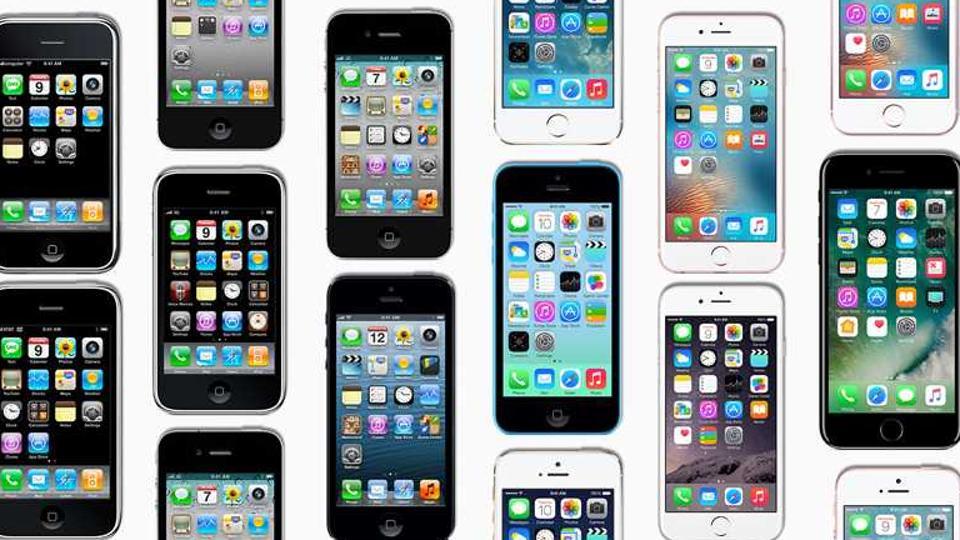Apple iPhone 8: The curious case of fingerprint sensor on the new iPhone
Apple is expected to alter the location of its iconic TouchID sensor with the new iPhone 8. What does the change mean to you?

'Revolutionise' is perhaps the most overused term in the tech space. How many times have things been actually revolutionised? If you ask us, there have been very few instances when a gadget or feature changed the approach to our digital lives altogether.
Remember, the iPhone 5S? Launched in 2013, it was the first iPhone to come with a biometric sensor, known as TouchID. Renowned technology journalist Walt Mossberg of All Things Digital had then described TouchID as a "real advance, the biggest step ever in biometric authentication for everyday devices".
"After using Touch ID, I found it annoying to go back to typing in passcodes on my older iPhone," he had said.
Back in 2013, I had just a BlackBerry 9220, which had 2G internet and FM Radio (hey, it was the first BB device to have that). One of my colleagues had just bought the iPhone 5S and I could not wrap my head around the idea of a biometric sensor on a smartphone. I owned a HP DV6 Windows laptop that had a fingerprint scanner too. But a biometric sensor on a phone was a different thing altogether.
The Apple iPhone 5S didn't really make the passcodes redundant, but kick-started a whole new category of smartphones, which had fingerprint sensors too. Soon, Android smartphones, across all price ranges, started to offer this feature. Today, if you look around, an Android smartphone with fingerprint scanner is available for as low as ₹5,000.
About four years later, there's again a lot of buzz around Apple's fingerprint scanner. And it's mostly because Apple is expected to change the position of the TouchID from the home button, something all iPhone users have grown accustomed to.
Apple's highly anticipated anniversary special iPhone, dubbed as the iPhone 8 aka iPhone X aka iPhone Edition, is expected to come with an edge-to-edge bezel-less display. While bezel-less smartphones are already a hot new trend, an edge-to-edge display also allows Apple to offer more screen real estate without making much change in the dimensions of the smartphone. But at the same time, it will also mean sacrificing the home button on the front.
There are contradictory reports about the relocation of TouchID. While some reports claim it will be located on the back, some say it will be clubbed with the lock/unlock button on the side. These both options seem highly plausible and perhaps too convenient as well. There is an abundance of smartphones that have rear-facing fingerprint scanners and some like Sony Xperia XZ1 have fingerprint scanner embedded into the power button on the side.
But one set of reports claim that Apple may go ahead with an in-screen fingerprint scanner. This essentially means users could unlock the phone by just tapping on the screen of the phone. Samsung reportedly toyed around this idea for its latest flagship smartphones, Galaxy S8 and Galaxy Note 8, but ultimately decided to give it a miss. But it doesn't mean such technology doesn't exist.
Some reports claim that Apple may go ahead with an in-screen fingerprint scanner. This essentially means users could unlock the phone by just tapping on the screen of the phone.
Qualcomm in June this year launched new fingerprint sensors that will work with glass as well. Also, these could work with water, sweat, scratched glasses and dented cases. This year Chinese company Vivo demoed a proof of concept that in-screen fingerprint sensor actually works.
Will Apple take the gamble with the in-screen fingerprint scanner? Well, we don't know for sure. According to 9to5mac, the iPhone 8 aka iPhone Edition will feature an OLED panel that will be integrated with a 3D Touch module. But this also means, the new iPhone will be very, very expensive.
Industry experts KGI estimates one OLED panel costs around $120-$130 per unit as compared to $45-$55 for one LCD panel. This is most probably why Apple's speculated to cost around $1,000, making it the most expensive ever.
But then there are reports that Apple will nix TouchID sensor altogether. According to Wall Street Journal, Apple may ditch the fingerprint sensor in favour of a facial recognition technology. The report says that Apple might be grappling with supply constraints and may force the company to release the phone at a much later date.
Well, will Apple be successful in revolutionising the way we use biometrics on our personal devices? Wait till September 12 for answers.
Catch all the Latest Tech News, Mobile News, Laptop News, Gaming news, Wearables News , How To News, also keep up with us on Whatsapp channel,Twitter, Facebook, Google News, and Instagram. For our latest videos, subscribe to our YouTube channel.

























